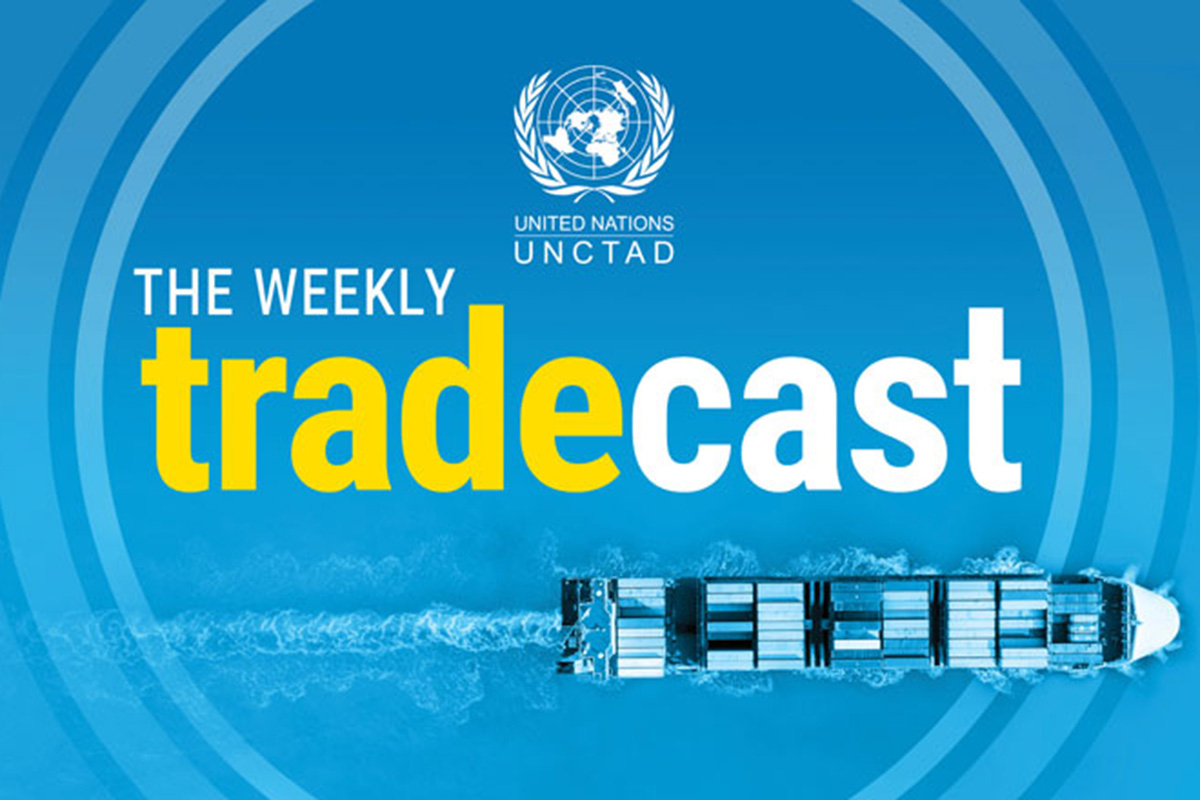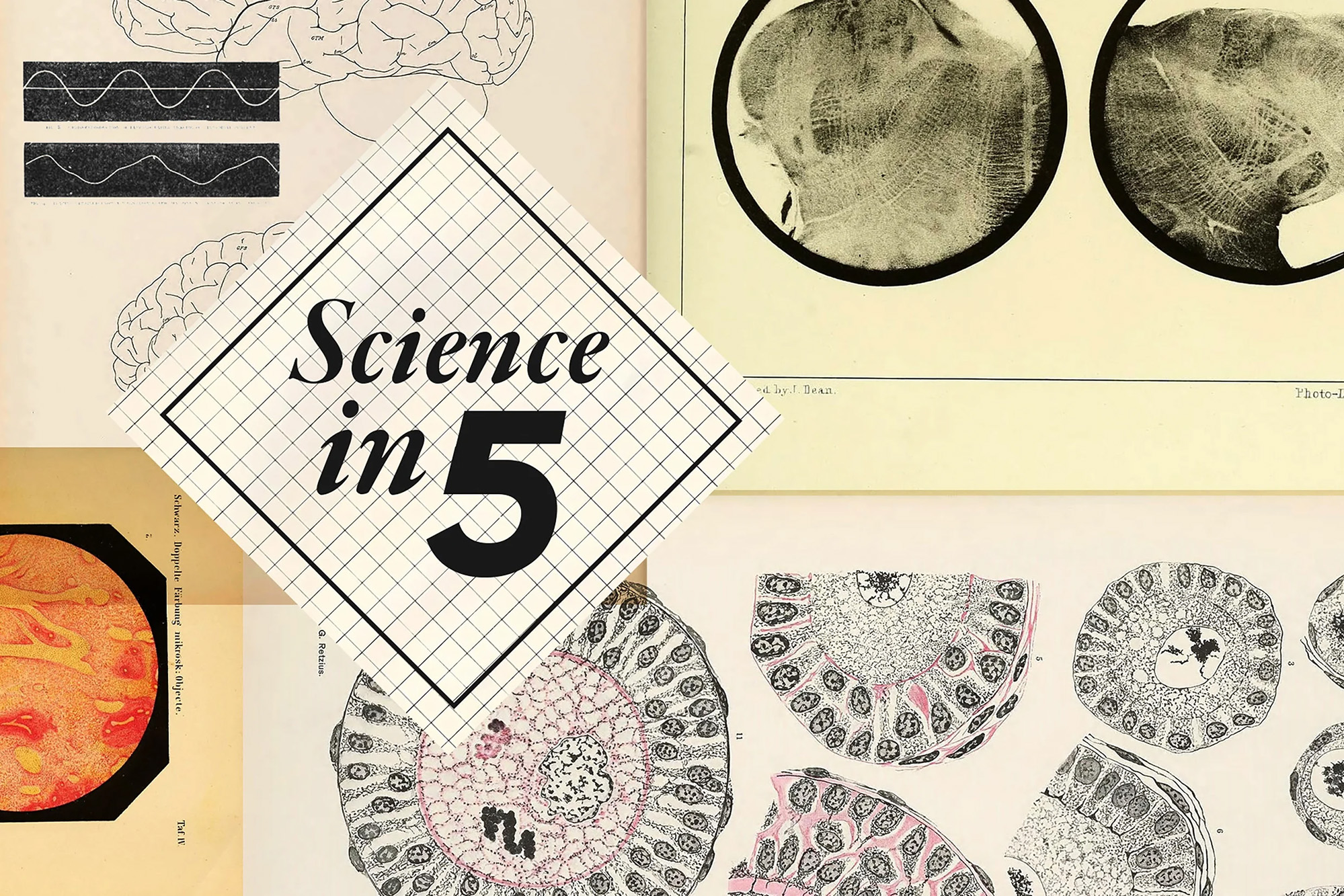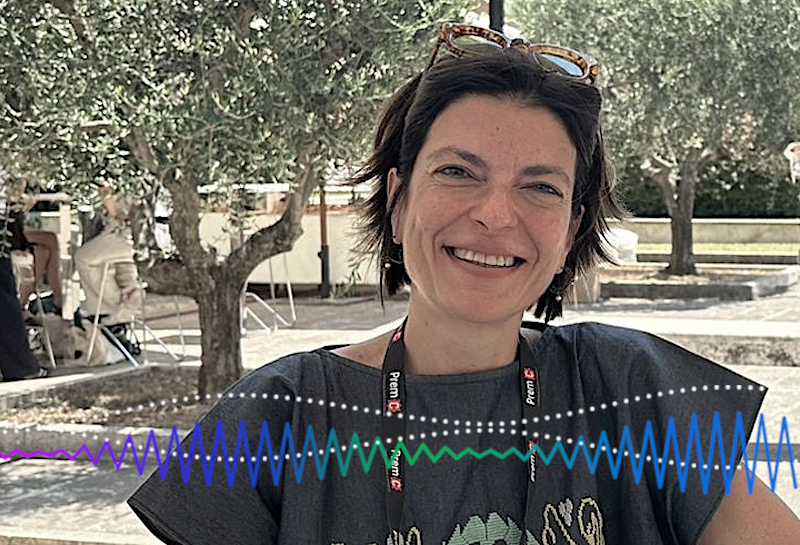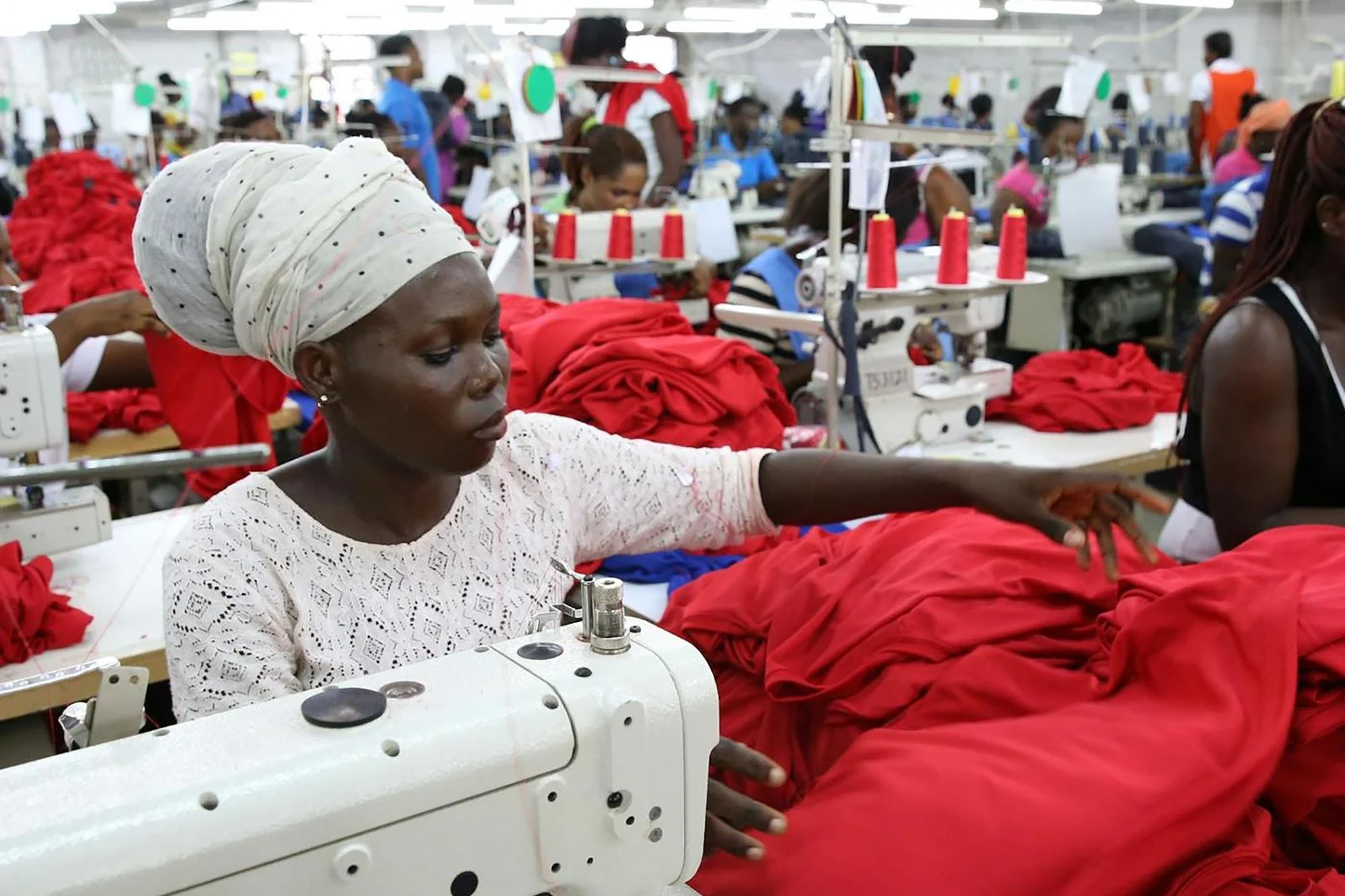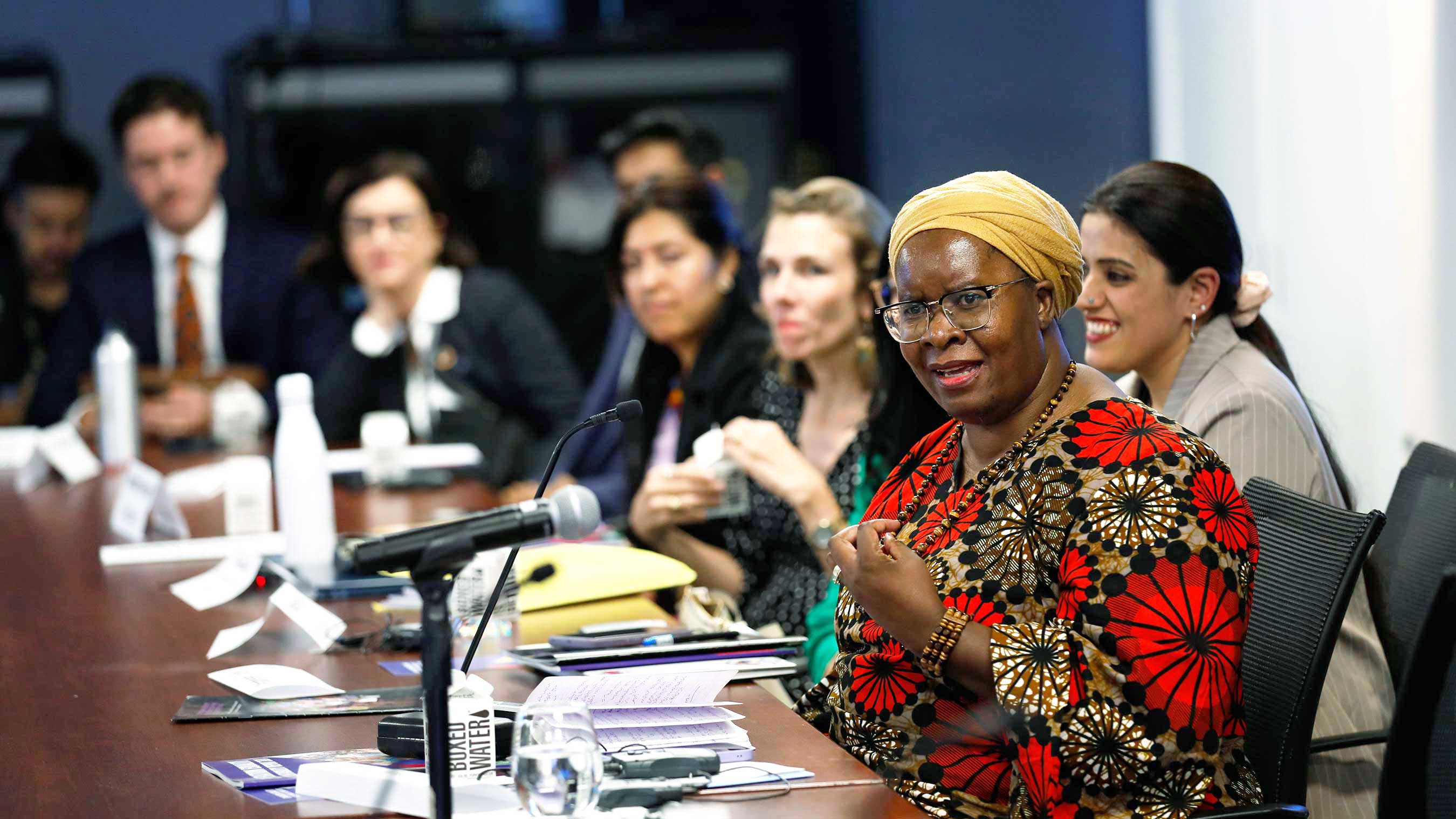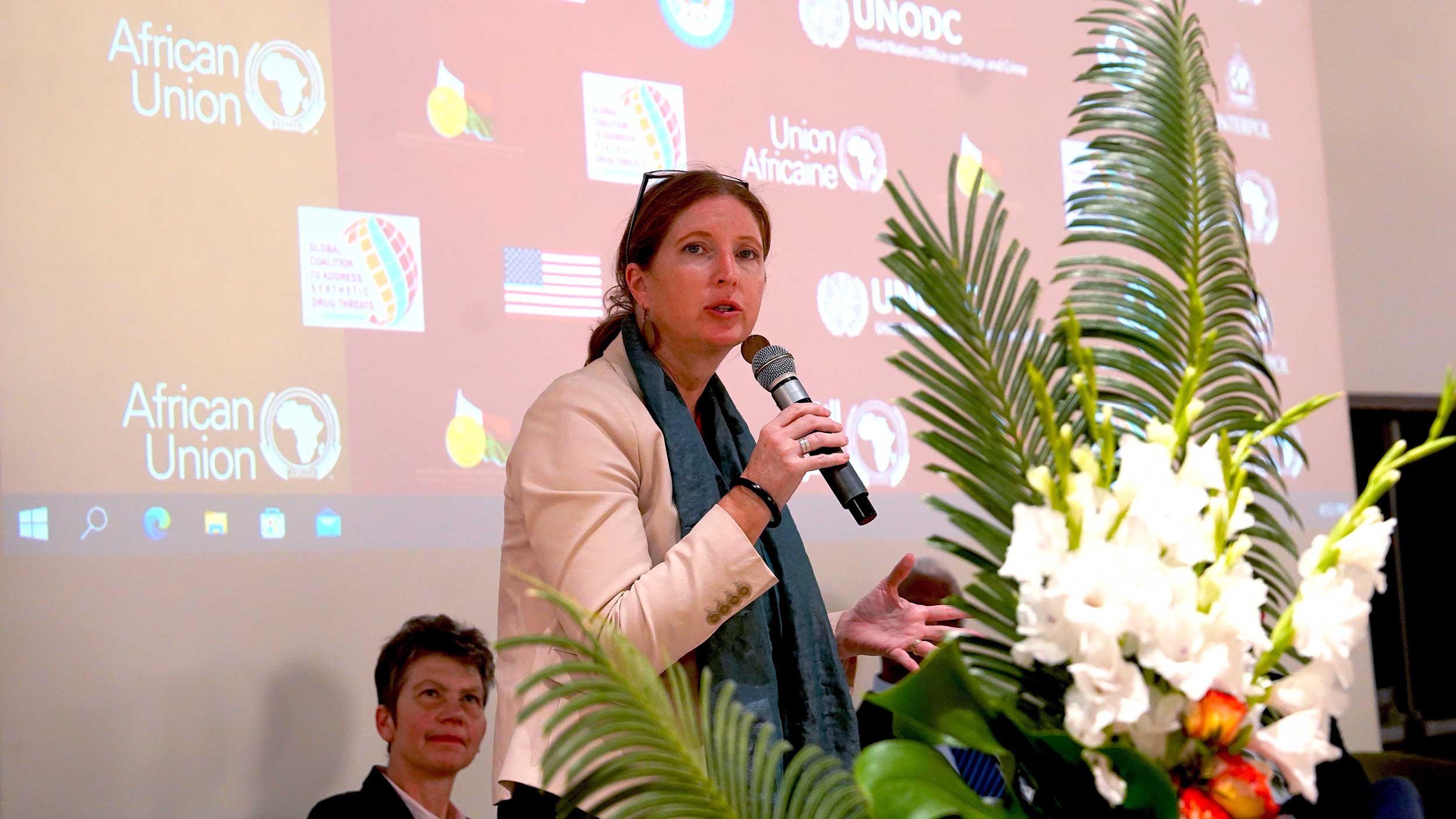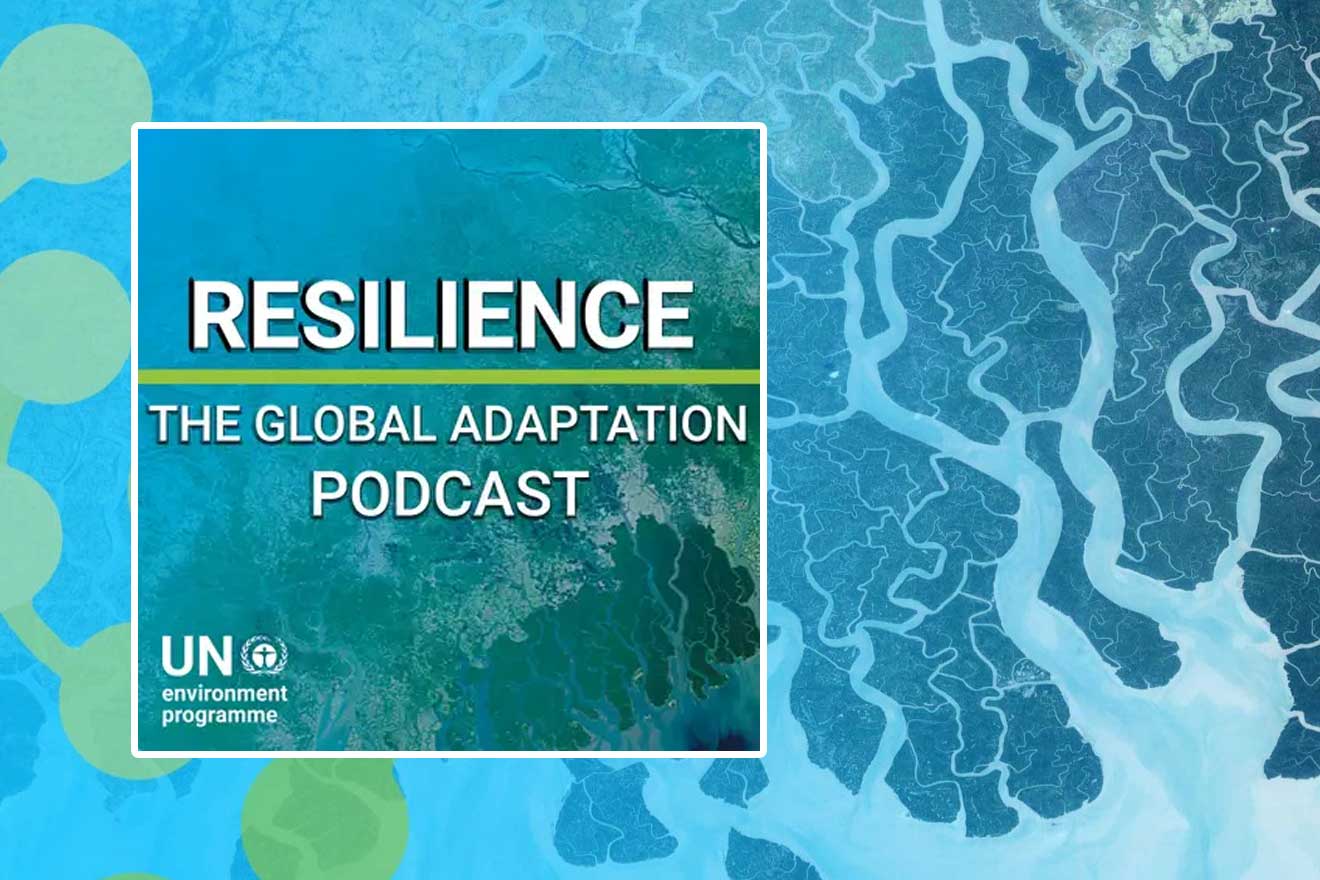What does a mother need to know to ensure that she has a safe pregnancy and delivery? What are some warning signs to watch for? And what are a woman’s rights while going through a pregnancy and delivery? Join maternal health expert Dr Femi Oladapo in a new episode of WHO's Science in 5 podcast.
Antibiotics save lives. But when the supplies run low or bacteria become resistant, the risks grow — especially in developing countries. On this episode of UNCTAD’s The Weekly Tradecast, economist Bruno Casella explores the challenges of securing essential antibiotics, the impact of limited local production, and how better investment and coordination can strengthen supply chains.
Severe resource shortages are threatening the global response to end tuberculosis. Is the world on the brink of a global TB crisis? A quarter of the world’s population could be infected with TB and not even know it. Is there a cure? What is the treatment? How do we diagnose TB? Listen to Dr Tereza Kasaeva in a new episode of the World Health Organization’s Science in 5 podcast.
Reparations for the crimes of the transatlantic slave trade “can’t be quantified” given the vast historical sweep of human history, according to the first Black African to be awarded the Nobel Prize for Literature, Wole Soyinka.
The longtime Nigerian democracy activist was at UN Headquarters in New York to take part in commemorations for the International Day of Remembrance of the Victims of Slavery, telling the General Assembly that it remains crucial to confront centuries of wrongdoing.
Ana Carmo sat down with him in our UN News studio following the event and asked him to outline his main message to the international community.
Did you know that diseases are being eliminated by countries all over the world. In the last five years alone, 44 eliminations have been confirmed by the World Health Organization (WHO). What does it take to eliminate a disease? What needs to happen before WHO can certify an elimination? Once eliminated, can these diseases come back? Dr. Jérôme Salomon explains in a new episode of the Science in 5 podcast.
Not long ago, we were deep in a cost-of-living crisis. Inflation has now eased a bit but geopolitics remain tense and the global economy is still struggling to recover.
But rather than moving towards more open trade, many countries are becoming more protectionist. Adding to the unease, countries are threatening to slap huge tariffs on major trading partners.
In the current climate, there are fears that escalating tariffs could lead to trade wars - a scenario with grim prospects for many developing countries. For more on the ins and outs of tariffs, tune in to the UNCTAD’s Weekly Tradecast with Emily Blanchard, former Chief Economist at the U.S. State Department and Associate Professor at the Tuck School of Business at Dartmouth College.
According to Jean-Pierre Lacroix, the Under-Secretary-General of Peace Operations, there are many good reasons for increasing the number of women peacekeepers in UN Missions. UN News’s Anshu Sharma spoke to Mr. Lacroix at the first-ever Conference for Women Peacekeepers, held in the Indian capital New Delhi on 24 and 25 February, where he was representing the United Nations. The Under-Secretary-General argued that changing the gender balance benefits the work environment in Peacekeeping Missions, improving conduct and discipline. Ms. Sharma began by asking him why it was important to make the trip to New Delhi, and what was achieved.
The International Economic Association’s Women in Leadership in Economics Initiative (IEA-WE) connects women economists worldwide and helps showcase their important empirical research, especially in developing countries. IMF Podcasts has partnered with the IEA-WE to produce a special series featuring the economists behind the invaluable local research that informs policymakers in places often overlooked. Driving Change kicks off this limited-run series from Turkey, with economist Ipek Ilkkaracan, who makes a strong business case for investing in social care infrastructure.
Ekkehard Ernst, author of the International Labour Organization (ILO) report: "World Employment and Social Outlook: Trends 2025", joins the Future of Work podcast to discuss how geopolitical tensions, climate change, artificial intelligence, and inequalities are affecting global labour markets.
Did you know that if a child with measles walks into a classroom, every unvaccinated child will most certainly get it? Why are measles cases increasing worldwide? Why should you be concerned about it? And is the measles vaccine safe and effective? Dr Natash Crowcroft answers these questions in a new episode of WHO's Science in 5 podcast.
“Peace is a prerequisite. It's so critical for development… for unleashing the potential of the little girls. Peace is so important for enabling mothers, widows to give the best they can.”
Having grown up in war-torn rural Zimbabwe, Nyaradzayi Gumbonzvanda overcame extreme hardship to pursue a career at the highest levels of the United Nations. Now UN Assistant Secretary-General, and one of two deputy executive directors of UN Women, she wants little girls everywhere to aspire to the same heights.
“Never let your circumstances determine your future. They are just a stepping stone to who you truly are.”
UN Women works to uphold women’s human rights and ensure that every woman and girl lives up to her full potential. In this episode, Nyaradzayi reflects on a childhood touched by war, poverty and disease, on a lifelong love of learning, and on how a recent accident gave her a new perspective on inequality.
Photo: ©UN Women/Ryan Brown
“There are also great stories and children who I see, who you know, are so resilient, children who have hope for the future.”
Catherine Russell never forgets the children she meets. As Executive Director of UNICEF, she bears witness to the stories of tens of millions of children and young people suffering around the world, and shares causes for optimism and hope wherever she finds it.
“Children just want to be children. No matter what, the bleakest situation, the most terrible things, they still want to play right? They want to find some joy. They want to just be kids, and I think that's what we have to all work to protect.”
2024 was one of the worst years on record for children in conflict, a devastating statistic that the UN is refusing to accept as a deadly new normal. In this episode, Catherine reflects on the impacts of childhood trauma, the limits of human resilience, and looks back on a childhood spent trick-or-treating for UNICEF.
Photo: ©UNICEF/UN0733293/Truong Viet Hung
* Episode recorded end of 2024
"[T]his is another place where the UN can play a role in bringing that public private connectivity together"
Carmen Corbin dreamt of serving with the United Nations from an early age. Now head of Transnational Organized Crime, Illicit Trafficking and Terrorism Prevention programmes at the Office on Drugs and Crime (UNODC) in East Africa, she is dedicated to protecting children from shocking online exploitation.
“We won't know who is real and who is not real. We can't keep up. All of us, in some way, shape or form, will potentially suffer from the fact that we won't be able to trust anyone that we meet, because you're never sure if that person is truly who they say they are.”
The UNODC supports law enforcement efforts in tackling all transnational organized crime and counter terrorism, including cybercrime. In this episode, Carmen reflects on the challenges of overseeing a wide portfolio, on the psychological strain of prosecuting the worst kinds of cybercrimes and shares her advice for a successful international career.
Photo: ©Glory Ndaka
“We can see how many people are suffering…We can see that people are running out of food, are running out of water, and the real narrative is that this will affect everyone sooner or later.”
Celeste Saulo has always been fascinated by the weather. Now Secretary-General of the World Meteorological Organization (WMO), she is seeing climate breakdown warp global weather systems beyond recognition, with devastating impacts on countless lives and livelihoods.
“We want to save lives. We need these early warnings to reach everyone on Earth.”
The UN Secretary-General has issued a red alert for the planet after a full decade of record-breaking heat driven by human activity. In this episode of Awake at Night, Celeste reflects on our shared responsibility to future generations, on an emotional meeting with Pope Francis, and on why she can never give up hope.
“If you work with youth, you need to have hope, because for me, it's not fair not having hope… We need to work along the lines we believe are better opportunities for them, and we need to engage them, and I would say, to follow them.”
Photo: ©WMO
In this episode from UNEP's "Resilience: The Global Adaptation Podcast", we dive into questions related to how the media covers climate adaptation. What makes a climate story go viral? Why are stories so important for making sense of the climate crisis? How can the media convey the urgency without breeding despair? Lis and Marcus sit down with The New York Times’ adaptation reporter Christopher Flavelle to explore these questions. Plus, the filmmaker and explorer Malaika Vaz shares what it’s like to capture victims of the climate crisis and tell their story to a global audience.


